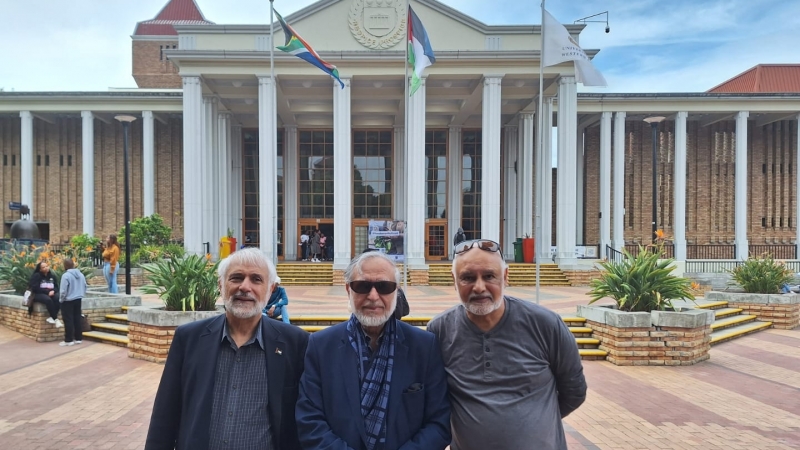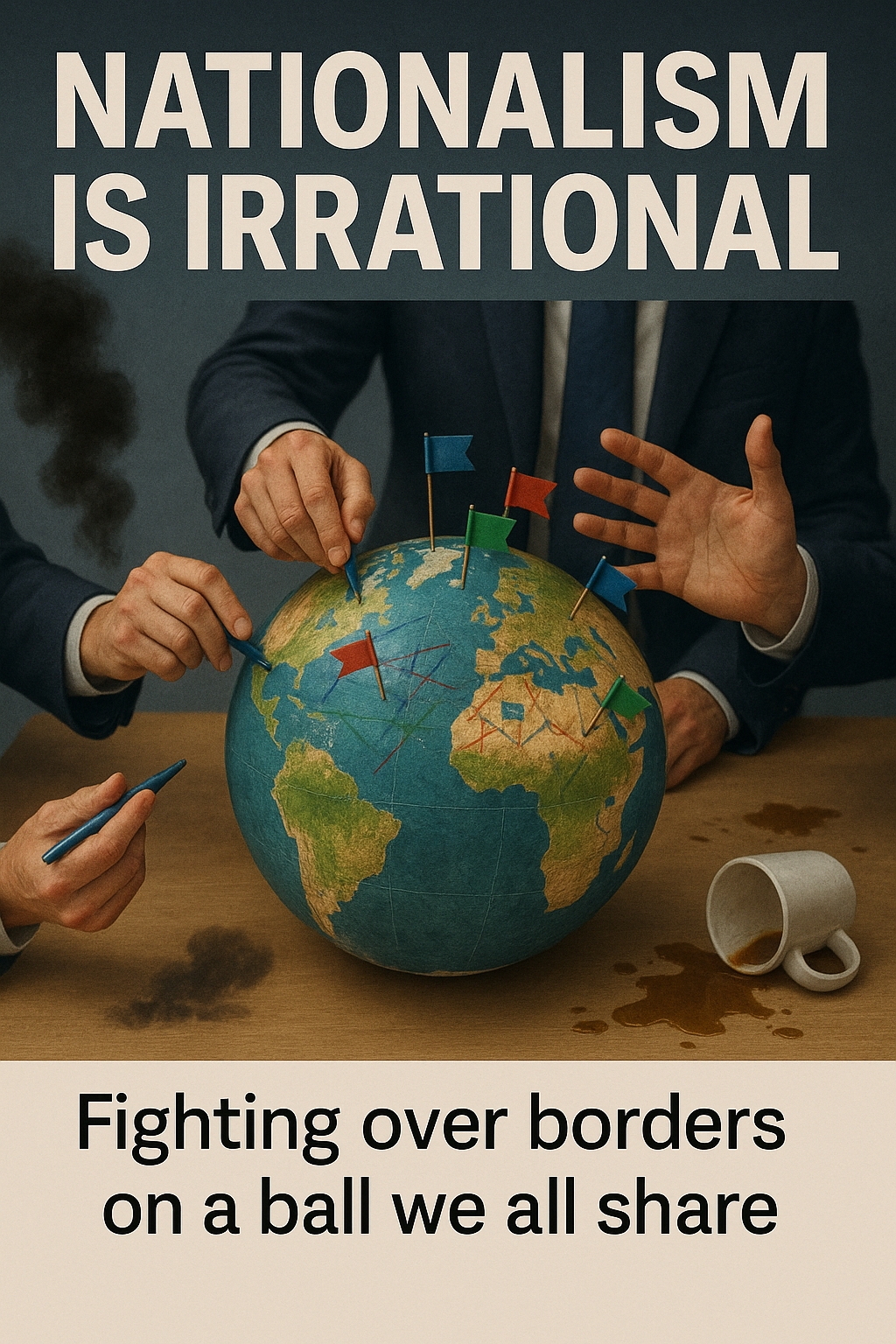Fazilat Party’s turn to be banned in Turkey for being Islamic-ish
Developing Just LeadershipCrescent International
Rabi' al-Thani 09, 1422 2001-07-01
World
by Crescent International (World, Crescent International Vol. 30, No. 9, Rabi' al-Thani, 1422)
Turkey’s constitutional court has banned Fazilat (‘Virtue’), the Islamist opposition party, for undermining the country’s secular order. The court’s decision, delivered on June 23, came just a few days after general Huseyn Kivrikoglu, chief of general staff, issued a dire warning of the threat still posed by political Islam to Turkey’s secular democracy. It also followed strong pressure from government, parliamentary and business circles on the court to postpone its ruling, pending constitutional changes to make the banning of political parties more difficult. The planned constitutional changes, designed to appease the European Union, can only strengthen Turkey’s ‘secular democracy’, such as it is, and should therefore have been popular with the military, but the generals see them as a long-term threat to their real, though unofficial, political weight. Turkey’s politicians and businessmen wanted the court’s ruling to be postponed because they feared that the dissolution of the largest opposition-party would lead to new elections, and sabotage efforts to resolve Turkey’s worst economic crisis.
Fazilat had faced two main charges: that it was a focal point for antisecular activities, and that it was the illegal continuation of the Refah (‘Welfare’) Party, the Islamist party that was banned in 1997. The prosecutor argued that the party provoked religious conflict “like vampires that will only be satisfied with blood”. But Fazilat leaders denied that they were out to destroy the country’s secular order, arguing that their party simply reflects their belief in religious values. The indictment, drawn up more than two years ago, demanded that its leaders should be banned from political activity for five years and its 102 members of parliament dismissed.
The 11-member court found Fazilat guilty of the first charge by 8 votes to 3, and decided to dissolve it and seize all its assets “for activities against the principle of a secular republic”. It also voted unanimously to expel two of its members from parliament and, along with three other party workers, banned them from political activities for five years. The court, however, voted 6 to 5 to acquit Fazilat of the charge of being an illegal continuation of Refah; this verdict prevented the expulsion from parliament of the 69 Fazilat members who had earlier belonged to Refah, and avoids the necessity of by-elections.
Under Turkish law, by-elections must be held if more than 5 percent of parliament’s 550 seats become vacant. This means that elections become mandatory when 28 seats are vacant. With only 2 of the 102 MPs belonging to the now-dissolved Fazilat Party expelled, and the remaining 100 allowed to sit as independents, the need to hold by-elections has been averted. In all at the moment there are only 10 seats vacant. Mim Kemal Oke, a political scientist at Bosphorus University in Istanbul, was quoted in a newspaper report as saying that “this is the least of all evils”. He has no doubt that the court came under conflicting pressure from the military and the politicians and financial markets fearful of the financial fallout of a decision to close Fazilat. Those who believe that it is only temporary relief argue that the 100 former Fazilat MPs will now be courted by the three parties forming an uneasy coalition under prime minister Bulent Ecevit, and that they are certain to split into two factions: one made up of traditionalists supporting Necmettin Erbekan (Refah leader and prime minister when the party was banned in 1997), and the other ideologically right of centre. If the split happens and the ruling coalition parties compete to co-opt the MPs, then the fragile coalition is almost bound to crumble, in which case an election would be inevitable.
A political upheaval at this time would further complicate Turkey’s worst economic crisis to date. The country is still recovering from the crisis, which began in February after a currency devaluation of some 50 percent. Thousands of firms have gone bankrupt and half a million Turks have lost their jobs. The resulting street protests ended only when the government put in place a recovery plan, backed with $15.7 billion in loans from the IMF and the World Bank. The plan, approved in May, also aims to end decades of hyper-inflation and currency depreciation through wide-ranging structural ‘adjustments’, including an overhaul of the banking system and privatisation of state-owned industries. The structural plan, which at the best of times would be contentious, has already strained relations between the coalition-parties.
But many Turks, who want their country to be admitted into the EU, are fearful that the court’s decision, though not as severe as generally expected, will be used by Brussels to keep Turkey at arm’s length. The EU has already warned Ankara that any decision by the constitutional court to ban Fazilat Party would be detrimental to its chances of joining the Union. It was in 1999 that the EU first accepted Turkey as a candidate for membership. But it has since laid down strict conditions for negotiations, including the ‘democratization’ of the political system to the extent that no political party is banned and that the military should be divested of its political powers. However, most Turks believe that the EU will not admit Turkey as a member simply because it is a Muslim country.
That the EU, which considers the separation of religion and politics a tenet of democracy, is warning Turkey against banning a putative Islamic party accused of being a focal point for anti-secular activities, seems ironical. But Brussels knows, of course, that Fazilat is not an Islamic party and has no Islamic platform or programme, so the irony is only apparent and the EU is only exploiting the issue to keep Turkey out. A true irony, on the other hand, is that the generals profess to be the pillars of Turkey’s secular democracy, when they are its most virulent enemy. They carried out three military coups between 1950 and 1980 to preserve the power reserved for the military under the system founded by Kemal Ataturk in the 1920s. The irony in this case is very real and far from apparent.
Fazilat has no objection to Turkey joining the EU, an organization totally inimical to Islam. One can only hope that the experience of the ‘Islamist’ political parties, and the tactical and strategic games being played by the EU and the Turkish military around this issue, might show Turkish Muslims that the need is for an Islamic movement committed to establishing an Islamic state.



